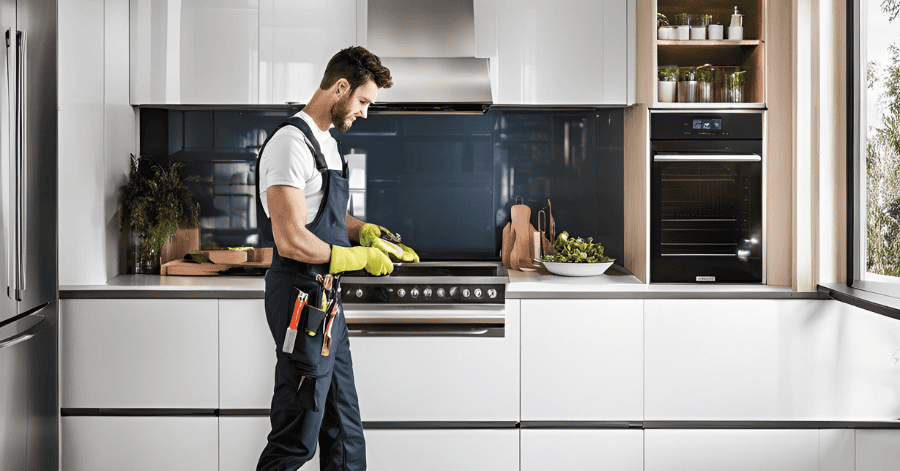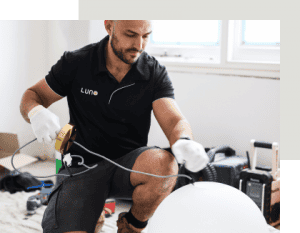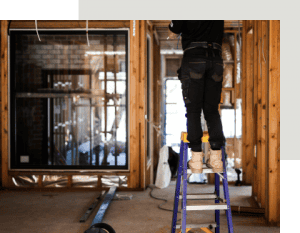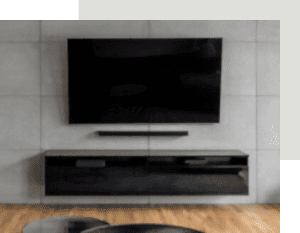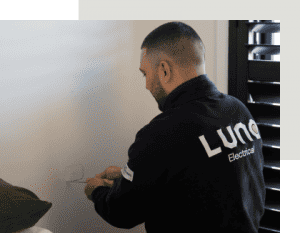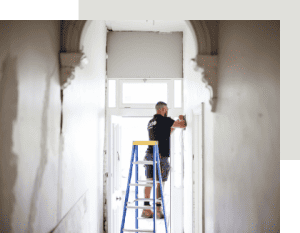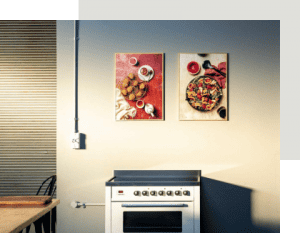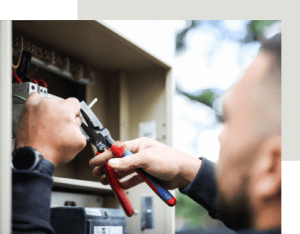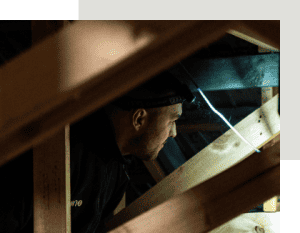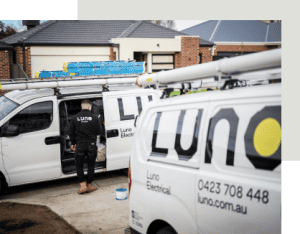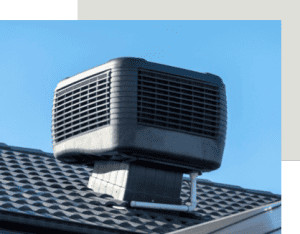Electrical Oven Installation
Dedicated Circuits & Power Supply
One of the most important considerations when installing an electric oven is whether your home has the right electrical infrastructure. Many older homes may need an upgrade, as modern ovens typically require dedicated circuits that can handle higher power loads. Ensuring that your oven has a dedicated circuit helps prevent overloading your home’s electrical system, which can lead to tripped breakers or, worse, electrical fires. Read more about switchboards and circuits here.
Clearances & Ventilation
Australian regulations specify that ovens must have appropriate clearance for safe ventilation. Although most ovens are insulated to prevent heat from transferring to surrounding surfaces, it’s important to check the manufacturer’s recommendations for ventilation gaps. These gaps allow hot air to escape, preventing overheating and prolonging the life of your appliance.
Compliance Certificate
In Victoria and across Australia, electrical installations, including ovens, must be carried out by licensed electricians. After installation, the electrician will issue a compliance certificate, ensuring the work meets safety standards. This certificate is crucial for warranty claims and home insurance.
Luno Electrical Expertise
At Luno Electrical, our team makes sure your oven is connected to the proper wiring and complies with all Australian safety standards. Whether you’re upgrading from an older model or installing a brand-new unit, we handle everything from start to finish.
Cooktop Installation
Power Supply & Circuitry
Electric cooktops, like ovens, require a reliable electrical connection. Modern electric cooktops often need more power than older models, meaning your home may need a wiring upgrade. Without this, the cooktop may not perform efficiently, or worse, cause electrical issues.
Clearances
Clearance space is crucial for the safe operation of cooktops. According to Australian standards, electric cooktops should have at least 600mm of vertical clearance between the cooking surface and a rangehood. Additionally, 50mm clearance from the front of the cooktop to the bench top edge is recommended to avoid accidents.
Cooktop Ventilation
Modern cooktops may also need specific ventilation setups, especially those with built-in fans. Adequate space beneath and behind the cooktop ensures hot air doesn’t accumulate, which could damage the unit over time.
Luno Electrical’s Cooktop Services
Our experienced electricians ensure that your new cooktop is installed with the proper electrical infrastructure and clearances in mind. Whether it’s a replacement or a brand-new setup, Luno Electrical provides safe, compliant installations. Read our full article on the top 5 reasons you want an electrician to install your dishwasher.
Rangehood Installation
Positioning for Optimal Ventilation
Rangehoods are essential for eliminating smoke, grease, and odours from your kitchen. When installing a rangehood, it’s important to follow the minimum clearance recommendations. For electric cooktops, the rangehood should be installed at least 600mm above the surface to ensure proper air circulation. Correct positioning enhances efficiency and keeps your kitchen air clean.
Ducting and Exhaust Systems
Ducted rangehoods must be connected to an external vent to expel fumes outdoors. Non-ducted (recirculating) rangehoods filter the air and recirculate it back into the room. Both types need proper installation to function effectively. Poor installation could result in lingering odours or inefficient air filtering.
Rangehood Aesthetic and Functionality
A well-installed rangehood not only improves ventilation but also enhances the kitchen’s aesthetic. Options like concealed or canopy rangehoods can add a sleek, modern touch while maintaining functionality.
Luno Electrical’s Rangehood Services
At Luno Electrical, we offer professional installation for all types of rangehoods. We ensure that the unit is placed correctly for optimal performance and securely connected to either ducting or recirculating systems. You can read more about our Rangehood installation service here.
Dishwasher Installation
Power and Water Connections
Dishwasher installations can be deceptively complex, as they require both electrical and plumbing work. When installing a dishwasher, it’s important to ensure the appliance has a proper power connection, separate from other high-powered kitchen appliances. Additionally, the water supply must be connected correctly, with proper drainage to prevent leaks.
Levelling and Securing
An unlevel dishwasher may not drain properly, leading to water pooling inside the machine. This can cause damage to both your appliance and cabinetry. Ensuring the unit is level and securely fastened is a key part of a successful installation.
Adequate Ventilation
Dishwashers installed under countertops need ventilation gaps to allow heat to dissipate. This prevents overheating and prolongs the life of the appliance. Without proper airflow, your dishwasher may overheat, leading to costly repairs down the road.
Luno Electrical’s Dishwasher Services
Our electricians at Luno Electrical take care of everything from connecting the electrical and water supply to levelling and securing the dishwasher. We ensure that your appliance is installed correctly to avoid leaks and prolong its lifespan.
Conclusion: Trust Luno Electrical for Your Appliance Installations
Installing kitchen appliances is no small task, and it requires the expertise of licensed professionals to get it right. From ovens to cooktops, rangehoods, and dishwashers, Luno Electrical has you covered. We handle everything, ensuring your appliances are installed safely, efficiently, and in compliance with all regulations. Don’t risk voiding your warranties or causing hazards with DIY installs — contact Luno Electrical today for reliable, top-quality service and a free quote.
Key Takeaways:
- Dedicated electrical circuits are crucial for appliances like ovens and cooktops.
- Proper clearance and ventilation are essential to prevent overheating and ensure safety.
- Licensed electricians must provide compliance certificates after installation.
- Professional installation ensures appliances are correctly connected, level, and safe for long-term use.
Looking for appliance installation near me: Read our guide.
